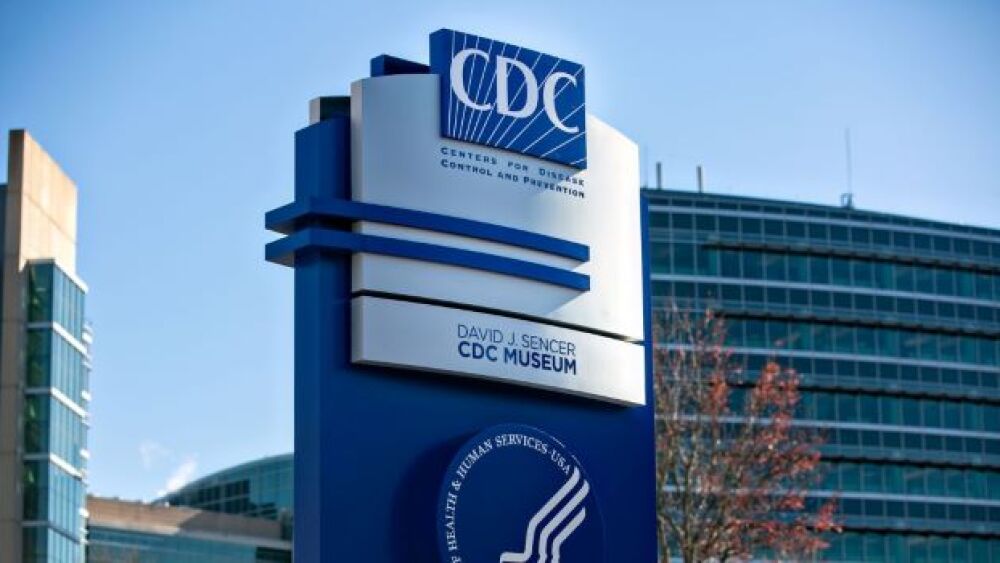The U.S. CDC said up to 5,800 people who have been fully vaccinated against coronavirus disease 2019 (COVID-19) have been infected by the novel coronavirus following vaccination.
Jason Armond / Los Angeles Times via Getty Images
The U.S. Centers for Disease Control and Prevention (CDC) said up to 5,800 people who have been fully vaccinated against coronavirus disease 2019 (COVID-19) have been infected by the novel coronavirus following vaccination.
While this report demonstrates that the currently authorized COVID-19 vaccines are not 100% effective, as shown in late-stage trials, approximately 77 million people have been fully vaccinated with these vaccines in the U.S., demonstrating that the real-world risk of infection following vaccination is relatively low.
Likewise, many experts believe the benefits of vaccination far outweigh the risks associated with catching the virus and developing COVID-19 without vaccination.
Out of the 5,800 who became infected after vaccination, some became severely ill, and a total of 74 people died. Approximately 7% who are infected after vaccination (396 people) were hospitalized to receive additional care.
As shown in Phase III clinical trials, the currently authorized COVID-19 vaccines are not 100% effective. And as millions of people continue to receive their doses of the shot, it’s likely that more reports of adverse events will continue to emerge.
Clinical trials that supported the authorization of Pfizer/BioNTech’s vaccine, for instance, showed the two-dose shot was 95% effective at preventing symptomatic COVID-19. Earlier this month, Pfizer/BioNTech noted that new real-life data from the U.S. shows the vaccine is over 91% effective against symptomatic disease after six months.
Additionally, late-stage trials of Moderna’s authorized COVID-19 vaccine demonstrated a 94.5% efficacy rate against symptomatic disease, while real-life data show the company’s vaccine is 90% effective.
In global trials, Johnson & Johnson’s (J&J) COVID-19 vaccine was 66% effective, while in the U.S. the vaccine demonstrated a 72% efficacy rate. To date, nearly 7 million doses of the J&J vaccine have been administered in the U.S.
A CDC and U.S. Food and Drug Administration joint statement, released Tuesday, said the agencies were looking into six cases of a rare yet severe form of blood clots in people who have received the J&J vaccine. These cases occurred in women approximately 6 to 13 days following inoculation. These events appear extremely rare, given the number of people who have received the vaccine versus the number who have experienced the adverse event.
The CDC says it will be monitoring real-world data for patterns in post-vaccine infection. So far, the agency says vaccine breakthrough infections have been reported in people of all ages who have been currently eligible for inoculation. The risk might be higher in the older population, however, considering slightly over 40% of vaccine breakthrough infections have occurred in people 60 years and older.
According to the CDC, approximately 65% of breakthrough infections were reported in women, and 29% of these infections were considered asymptomatic.
The CDC also says it plans to test samples from people who have become infected after vaccination to see how many of these post-vaccine infections were caused by variants of SARS-CoV-2.
“Vaccine breakthrough infections make up a small percentage of people who are fully vaccinated,” according to a statement made by the CDC to CNN. “CDC recommends that all eligible people get a COVID-19 vaccine as soon as one is available to them. CDC also continues to recommend people who have been fully vaccinated should keep taking precautions in public places, like wearing a mask, staying at least six feet apart from others, avoiding crowds and poorly ventilated spaces, and washing their hands often.”





